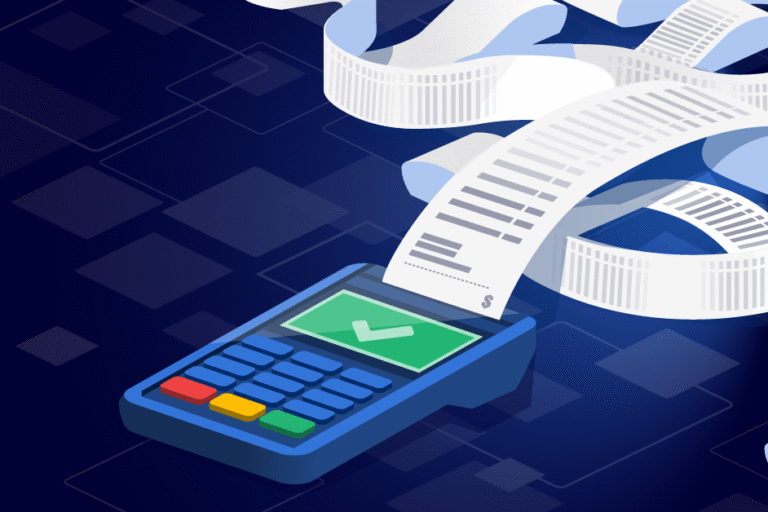
Outsourcing Paralegal Services: A Step-By-Step Guide
09/30/2024 By Dan Bowman
In the fast-paced and demanding world of law, attorneys are constantly seeking ways to optimize their time and increase their productivity. One effective solution that has gained significant traction in recent years is outsourcing paralegal services.
Many firms are finding it’s an efficient way to handle routine tasks, reduce overhead, and focus on high-level legal work. Remote paralegals offer specialized support without the need for in-house staff, making it easier to stay flexible while keeping costs down.
In this comprehensive guide, we will explore the benefits of outsourcing paralegal services, the differences between outsourced paralegals and legal assistants, ethical considerations, how to find the right outsourced paralegal services, and essential questions to ask when hiring a paralegal.
What Is an Outsourced Paralegal?
Outsourced paralegals are legal professionals who work remotely, often as freelance paralegals, to assist law firms with various legal tasks. They are not employed directly by the law firm but are contracted on an as-needed basis. These paralegals possess the necessary skills and experience to handle substantive legal work, which is assigned and supervised by licensed attorneys. They can perform tasks such as reviewing client files, conducting legal research, interviewing clients, and drafting legal documents under the guidance of an attorney.
Outsourced Paralegal vs. Legal Assistant
While outsourced paralegals and legal assistants may share some similarities, there are distinct differences in their roles and responsibilities. Legal assistants primarily focus on routine administrative tasks within a law firm, such as scheduling appointments, managing client communications, billing, and contact management. On the other hand, outsourced paralegals are trained professionals who can handle substantive legal work, including client file review, legal research, document drafting, and more, under attorney supervision.
Benefits of Outsourcing Paralegal Services
Outsourcing paralegal services offers several benefits for law firms of all sizes. Let’s explore some of the advantages:
Increased Efficiency and Productivity
By outsourcing non-billable legal tasks to paralegals, attorneys can focus on their core legal work, resulting in increased efficiency and productivity. Paralegals can handle research, document preparation, and other time-consuming tasks, allowing attorneys to dedicate more time to billable work, client consultations, and case strategy.
Cost Savings
Outsourcing paralegal services can lead to significant cost savings for law firms. Hiring full-time in-house paralegals entails additional expenses such as payroll taxes, health insurance, office space, and overhead costs. By outsourcing paralegal services, law firms can avoid these ongoing expenses and pay for paralegal services only when needed, reducing overall costs.
Flexibility and Scalability
Outsourcing paralegal services provides law firms with the flexibility to scale their workforce based on fluctuating workloads. During periods of high volume, firms can easily access additional paralegal support without the need to hire and train new in-house staff. This flexibility allows law firms to efficiently manage their resources and handle increased work without unnecessary overhead expenses.
Access to Specialized Skills and Expertise
Outsourced paralegals often have diverse backgrounds and specialized training in specific practice areas. Law firms can tap into this pool of talent to access expertise that aligns with their specific needs. Whether it’s a complex litigation case, real estate transaction, or intellectual property matter, outsourcing paralegal services allows firms to quickly access specialized skills without the need for extensive recruitment and training.
Improved Client Service
By delegating non-billable tasks to outsourced paralegals, attorneys can provide better client service. With more time available to focus on client consultations, case strategy, and legal representation, attorneys can enhance the overall client experience. Clients will appreciate the increased attention and responsiveness, leading to higher satisfaction levels and potential referrals.
How to Find Outsourced Paralegal Services
When searching for outsourced paralegal services, it’s essential to find a provider that aligns with your firm’s needs and values. Consider the following steps to find the right outsourced paralegal services:
1. Assess Your Firm’s Requirements
Start by evaluating your firm’s specific needs and the types of tasks you want to outsource. Identify the areas where additional paralegal support would be most beneficial and the skills required for those tasks.
2. Research Paralegal Service Providers
Conduct thorough research to identify reputable paralegal service providers. Look for providers with a proven track record, positive client testimonials, and a strong reputation in the legal industry. Consider factors such as experience, expertise, and the range of services they offer.
3. Review Credentials and Qualifications
Ensure that the paralegal service providers you consider have qualified and experienced paralegals on their team. Look for certifications or formal training programs completed by their paralegals, such as those offered by reputable organizations like NALA (National Association of Legal Assistants) or NFPA (National Federation of Paralegal Associations).
4. Evaluate Communication and Collaboration Tools
Effective communication and collaboration are crucial when working with outsourced paralegals. Look for legal practice management software like Bill4Time that utilize secure communication channels, such as encrypted email and cloud-based software, to protect client confidentiality and facilitate smooth collaboration.
5. Consider Pricing Structure and Flexibility
Compare pricing structures and options offered by different paralegal service providers. Look for providers that offer transparent pricing, flexibility in terms of engagement types (hourly, project-based, etc.), and clear guidelines on billing and invoicing.
6. Request References and Conduct Interviews
Ask for references from prospective paralegal service providers and reach out to their clients to get feedback on their experiences. Additionally, conduct interviews with the paralegals who would be assigned to your firm to ensure they have the necessary skills and can effectively meet your firm’s requirements.
Ethical Considerations for Outsourcing Paralegals
While outsourcing paralegal services offers numerous benefits, it’s essential to consider ethical considerations and obligations. Here are some key ethical considerations:
Confidentiality and Attorney-Client Privilege
Paralegals, whether in-house or outsourced, have a duty to maintain client confidentiality and uphold attorney-client privilege. Law firms must ensure that their outsourced paralegals understand and adhere to these ethical obligations. Communication channels and document storage systems should be secure, and paralegals should be trained on handling sensitive client information.
Supervision and Responsibility
Attorneys have a responsibility to supervise all paralegals, including those who are outsourced. It is crucial to establish clear lines of communication, assign tasks appropriately, and provide guidance and feedback to ensure the quality and accuracy of the work performed by outsourced paralegals.
Compliance with Legal and Ethical Standards
Law firms should ensure that outsourced paralegals comply with all applicable legal and ethical standards. This includes adhering to rules and guidelines set by professional organizations, such as NALA or NFPA, if certification is required in the jurisdiction.
Questions to Ask When Hiring a Paralegal
When hiring an outsourced paralegal, it’s essential to ask the right questions to assess their qualifications, experience, and fit with your firm. Consider the following questions:
- What is your experience in the specific practice area relevant to our firm’s needs?
- Have you worked remotely as a paralegal before? How do you ensure effective communication and collaboration in a remote working arrangement?
- What certifications or formal training programs have you completed as a paralegal?
- Can you provide references from previous clients or law firms you have worked with?
- How do you prioritize tasks and manage your workload to ensure timely delivery?
- What measures do you take to maintain client confidentiality and uphold attorney-client privilege?
- Are you familiar with the legal software and tools commonly used in our firm?
- How do you handle conflicts of interest or potential ethical dilemmas that may arise in your work?
By asking these questions, you can gain insights into the paralegal’s qualifications, work ethic, and ability to meet your firm’s needs effectively.
Use Bill4Time for Easy Legal Practice Management
Outsourcing paralegal services offers law firms a smart way to boost efficiency and cut costs. Remote paralegals bring specialized skills without the need for full-time hires, making them a flexible option for handling a variety of tasks. But before jumping in, it’s important to address ethical considerations and ensure smooth communication throughout the process.
With careful consideration and the right legal practice management software, law firms can benefit greatly from outsourcing paralegal services, ultimately streamlining their operations and achieving greater success. Use Bill4Time to easily implement practices at your firm that help contract workers collaborate with staff efficiently.



